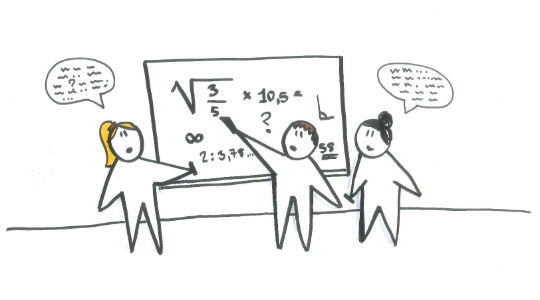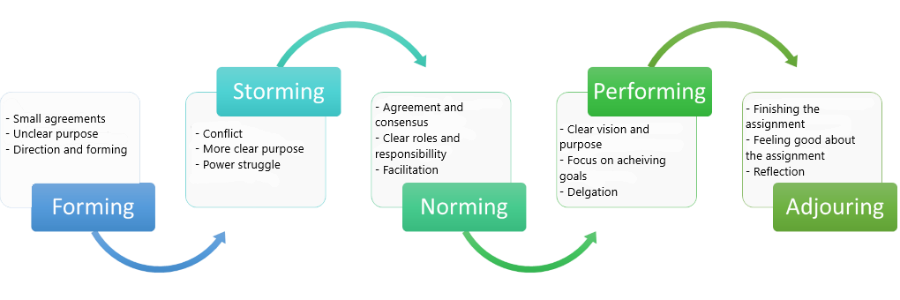
What are the purposes for meeting as a group?
There are many benefits to working in a study group. Your learning outcome will improve, and you will feel more comfortable studying. At the same time, you become aware of what you can use your group for and what to look for elsewhere.
Perhaps you have been placed in a study group? Perhaps you have chosen your group members yourself? In any case, it is important that you make yourself clear why you meet as a study group. In other words, what is the purpose of the group?
A study group can meet for many purposes. Examples of purposes could be:
- The group meets to discuss the curriculum
- The group meets to write an assignment together
- The group meets to solve cases
When the purpose is clear it is time to make a group contract
A good tool for matching your expectation is to make a group contract. In a group contract, the members of the group agree on what expectations you each have for ways of working, meeting times, communication etc.
It is good to have made a group contract before the study group experiences problems. It is also important to thoroughly discuss all points of the contract so that everyone can have their opinion heard.
You can see an example of a group contract here.
Diversity gives good results
When you must find your study group, it can be tempting to find someone who looks a lot like yourself. There may be some advantages in that it can be easier to navigate in collaboration with people you have a lot in common with. However, there are also advantages in having some who think completely differently from yourself in the group.
If you have different attitudes and perspectives in your group, then you are more likely to learn from and challenge each other. Various studies suggest that groups with many different types of members work more creatively and get better results.
Therefore, choose the types that compliment and challenge your competencies before those you agree with when choosing a study group.
Know about the group dynamics and their phases
It is natural that a newly established study group can face challenges. This is because a well-functioning group work must develop through some phases.
Bruce Tuckerman has described five phases that the group must go through from the group formed until it works. The five phases are called forming, storming, norming, performing and adjouring. You can read more about the five phases in the model below.

Reasons for not well working groups
You may be unlucky to find that your study group conflicts over the academic content or the way in which you work. In many cases, these conflicts are a result of poor communication and a mismatch of expectation. One of the most important things to get a well-functioning study group up and running is to make a thorough match of expectation.
Make a group contract
A good tool for matching your expectation is to make a group contract. In a group contract, the members of the group agree on what expectations you each have for ways of working, meeting times, communication etc. It is good to have made a group contract before the study group experiences problems. It is important to thoroughly discuss all points of the contract so that everyone can have their opinion heard. You can see an example of a group contract here.
Get help before the conflict affects your result
If you experience, despite a good contract, that the group work has gone wrong, it can be an advantage to get help to get you group communicating again. It can make sense to talk to a teacher or a General Student Counselor about getting help to facilitate a group conversation.